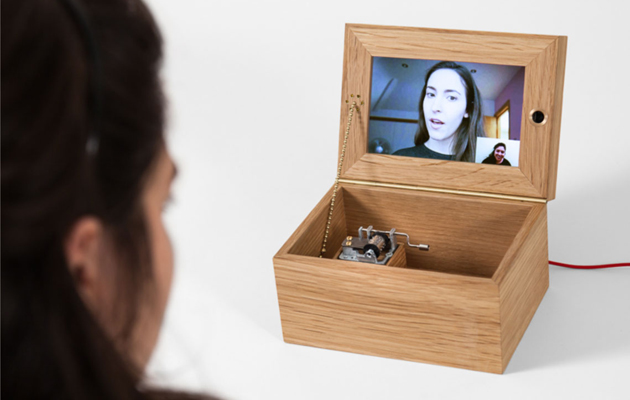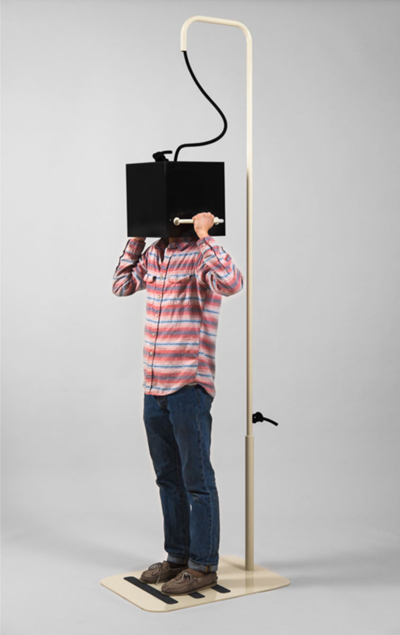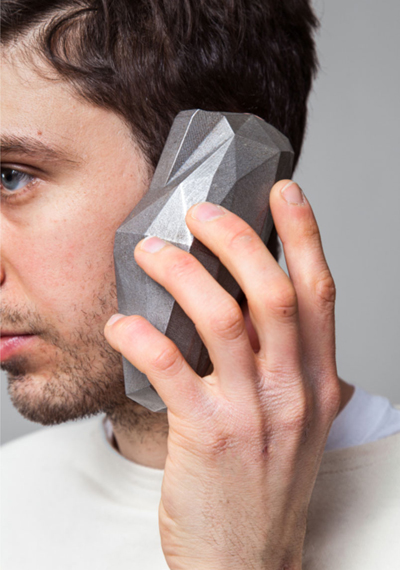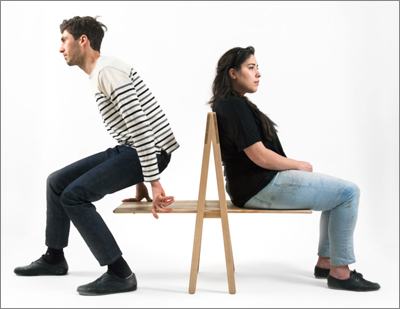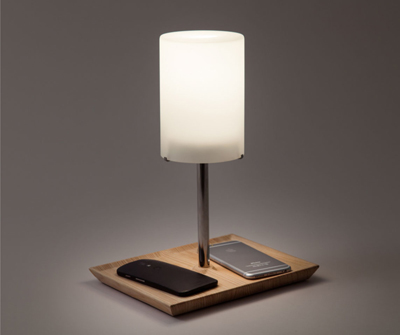|
|
||
|
An exhibition by Rhode Island School of Design at New York’s International Contemporary Furniture Fair presents objects that encourage direct communication in a world full of electronic devices Amid the throngs of visitors to Rhode Island School of Design’s (RISD) booth at this year’s International Contemporary Furniture Fair in New York, 23-year-old design student Linus Kung escapes inside his own piece of futuristic furniture. Entitled Privacy/Curiosity, it is designed to offer just this kind of respite from the doubled noise, intensity and madness of today’s world, where analogue and digital lives converge. “I was thinking about how I sometimes feel at parties,” Kung tells me afterwards, “the longing for privacy in public spaces, where you can see others but they can’t see you. It’s like the way we engage in social media – sometimes we like to preserve ourselves with privacy settings and at other times we like to display ourselves to everyone.”
Linus Kung’s Privacy/Curiosity The design stood out for its nostalgic, retro futurism – with its 1980s beach-tinted acrylic and medical equipment-style steel – but it is, in fact, an object for today – a place to regenerate semi-publicly while participating in high-octane living. It echoes a mood that RISD’s president Rosanne Somerson underlines in all the six designs displayed here: “Social activism in a time when cultures are changing at unprecedented speed.” Sam Newman’s Shellphone, a 3-D printed stainless steel object that replicates the soothing act of pressing a seashell against an ear, while playing with the motif of a mobile phone, and Mayela Mujica’s Illume Table Light, a brass and cypress base lamp with high-tech electronic components that invites visitors to recharge their phones while mingling without technology – both fit this description. “We need to take time out from time with our devices,” says Kung of the over-arching theme of the work, “We are interested in encouraging the physical senses with the tactile quality of these pieces, and the way they offer interaction and oasis.”
Sam Newman’s Shellphone If Generation Z, the first generation to grow up immersed in contemporary technology, is gauging our future – this is a glimpse: “A lot of us are reacting to how digital culture is affecting our face-to-face relationships,” says Kung. “We share our lives and this is happening more rapidly, like time has sped up.” Other pieces, like Kevin Saxon’s +1 Chair, which creates a playful interaction between two strangers, and Emre Bagdatoglu’s Permalink Boxes, which intimately recast video chat, speak of the desire to reclaim the enjoyment of another person’s real presence, as if digital natives are missing the simple pleasures of tangible time and space.
Kevin Saxon’s +1 Chair “With hook-up apps and social media, we’re able to meet new people so quickly and endlessly that it’s like we’re not able to enjoy the present moment of being with someone, as if intimacy is in danger because we’re always rushing to the next possibly better person,” Kung says. It’s a point that is, ironically, underlined by the sixth design, Ross Kellogg’s Transit Folding Chair, a piece inspired by small apartment living that folds, moves and stores as quickly as you need to make your getaway. When I asked what his generation will need from the furniture of the future, Kung offered: “Togetherness. Furniture will need to intervene as a way to foster intimate relationships.” The International Contemporary Furniture Fair took place in New York from 16-19 May
Mayela Mujica’s Illume Table Light |
Words
Above: Emre Bagdatoglu’s Permalink Boxes |
|
|
||

